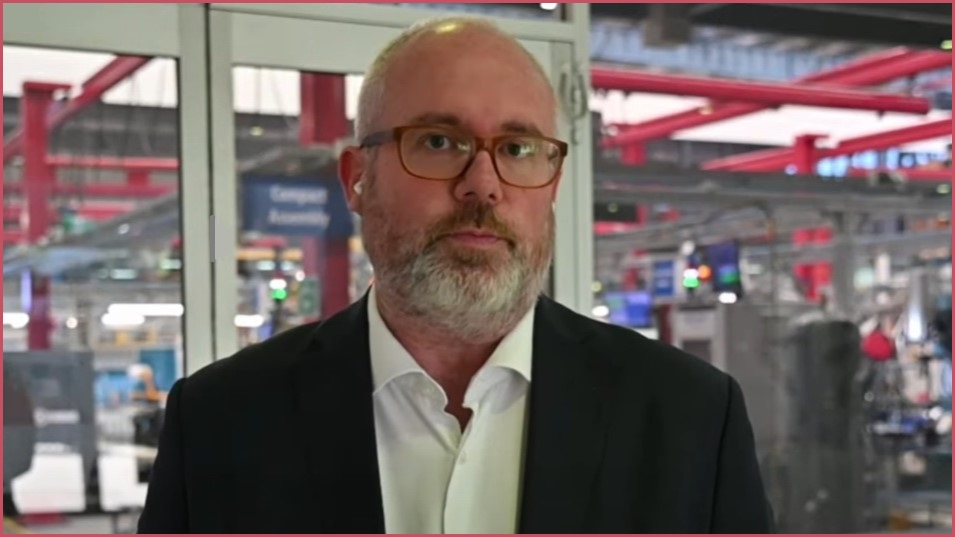Tim Ayres has signalled a major focus on artificial intelligence and its potential to boost productivity in his first major address as the new Industry and Innovation Minister, urging Australia to “lean in” to the emerging technology.
Speaking at the AFR AI Summit on Tuesday, Ayres flagged a continued focus on the Albanese government’s Future Made in Australia agenda and AI’s core role in this.
“Digital technology and artificial intelligence sit at the heart of this set of national challenges and national opportunities,” Ayres said.
“They straddle the economic resilience and future competitiveness national interest objectives that are at the centre of Future Made in Australia.
“Investments in digital infrastructure like energy-hungry AI data centres go squarely toward our national advantages, and our national interest.”
He said his focus will be on using AI to boost productivity and living standards, and that he will work closely with unions to ensure this is central to all policies and regulations.
Ayres was appointed the new Minister for Industry, Innovation and Science following Labor’s rousing election victory, replacing Ed Husic in the role who was ousted due to a factional reshuffle.
In his speech, Ayres said he would be continuing Husic’s focus on sovereign capability and manufacturing, and that AI will play a core role in this agenda.
Lean in
Ayres said Australia must embrace this technology now to ensure its benefits are harnessed.
“Australia has to lean in to secure a stake in global digital and AI development – to shape the digital future rather than have a future shaped for us at the end of global digital supply chains changing with technology, norms and infrastructure owned by increasingly narrow parts of the global economy,” Ayres said.
“The Australian challenge is to lean in to adopt AI to lift productivity and living standards, deliver investment in infrastructure and capability and protect our security.
“To realise the opportunities where we can and regulate where we must.”
He also signalled that he will work closely with the unions on how AI is used by businesses around the country.
“I will be looking in particular at how we can strengthen worker voice and agency as technology is diffused into every workplace in the Australian economy and I look forward to working with our trade union movement on all of this,” Ayres said.
Ayres also this week released the Australian AI Adoption Tracker report, which revealed that more than 40 per cent of Australian SMEs are adopting AI, up five per cent from the previous quarter.
The report also showed that 22 per cent of these businesses are seeing improvements in decision-making speed thanks to AI, and nearly 20 per cent said it has improved productivity.
The need for an AI Act
Husic, Ayre’s predecessor in the role, also addressed the AFR AI Summit and raised concerns that governments are “paralysed” by AI and Australia may not get an AI Act in this term of government.
“Governments are generally either paralysed, uncertain or can’t get agreement on a global way forward,” Husic told the summit.
“What would help is to be able to provide some certainty. We should at least have our own AI Act.
“I don’t know if that will happen in this term.”
Husic said there is currently a “Swiss cheese landscape” of regulation around AI, and having an umbrella Act would “encourage people to think ahead about how to mitigate [risks] and be transparent and open”.
“In the absence of having something that is solid and uniform, I genuinely worry we’ll be making it up as we go along,” he said.
Earlier this week, the Business Council of Australia released a national blueprint for Australia to become a leader in AI over the next three years.
It also warned that Australia will fall behind its competitors if it does not act urgently, and said that now is the “moment to embrace the opportunity for growth”.
Pioneering American venture capitalist Mary Meeker also recently released a report detailing the “unprecedented” growth of AI and its potential to have a positive impact.
Last month, the UN Development Programme’s 2025 Human Development Report highlighted the potential for AI to “reignite” stalling human development around the world through the creation of new jobs, in contrast to broad fears over job losses due to the technology.










